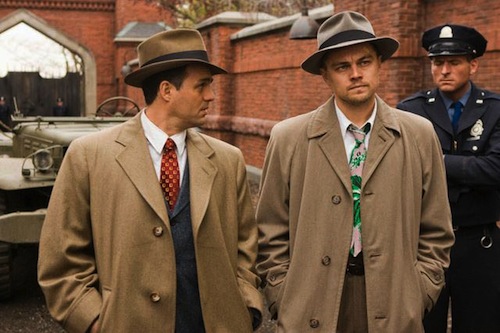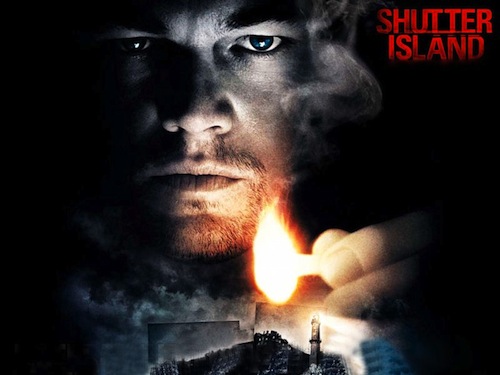Shutter Island, the setting of the new film by the same name from Martin Scorsese, is a haunted place. Apart from the disturbing apparitions that stalk its protagonist, the island is overrun with the phantoms of 1950s Cold War conspiracy films and film noirs, cerebral thrillers like Jacob’s Ladder, Mulholland Drive and The Shining, and even classic Gothic novels and Hammer Horror potboilers.
Of all the ghosts in the air, it is Alfred Hitchcock who makes his presence most keenly felt. Shutter Island is Scorsese’s homage to the master of suspense and a psychological thriller almost worthy of Hitchcock himself. It’s a carefully structured mystery that teasingly reveals its meaning one jigsaw piece at a time.
Shutter Island is based on a bestselling novel by Dennis Lehane, the US author who also penned Mystic River, the book that inspired Clint Eastwood’s masterful film of the same name. It traces two US Marshalls (played by Leonardo DiCaprio and Mark Ruffalo) as they hunt a murderess who has escaped from a mental asylum for the criminally insane located on the island.
To say more would to venture into spoiler territory, but it’s enough to say that this thriller focuses as much as on the psychology of its characters as it does on the twists that snake through its sometimes convoluted plot. For Scorsese, this standard thriller material is a vehicle to explore his traditional Catholic themes of guilt and redemption.
Shutter Island demands that you concentrate. Though some reviewers found the film a hard slog, I found it engrossing every step of the way. Its major virtues lie in excellent performances from every member of the cast, a script that bristles with tension, and of course, Scorsese’s skilful direction.
Scorsese was never as over-indebted to Hitchcock as his contemporary, Brian de Palma, but in Shutter Island he makes Hitchcock’s language his own. Many shots in the film directly reference Hitchcock in ways that lesser directors simply wouldn’t get away with.

At its best moments, the film can make your blood run cold without resorting to cheap shocks, even if Scorsese occasionally lays the ominous music on a little too thickly. The island and its Ashecliff Hospital for the criminally insane take a starring role in the film. The hurricane-lashed, mist-shrouded Shutter Island, the dimly lit interiors of Ashecliff, and the dramatic cliffs of the island are all conjured up with evocative cinematography.
The film is anchored by DiCaprio’s performance — it’s his fourth outing with Scorsese as his director. He plays the role of Teddy Daniels, a World War 2 veteran haunted by memories of his dead, beloved wife and of the horrors he saw first-hand as his army unit marched into Dachau.
DiCaprio’s faded pretty-boy looks are perfect for his damaged character, tortured by hallucinations and migraines. Though it’s not DiCaprio’s best work with Scorsese — that honour goes to The Departed — it’s a riveting performance, laced with paranoia, desperation and inner turmoil.
The supporting cast is uniformly excellent, especially Jackie Earle Haley (Rorschach in The Watchmen) as a disturbed patient and Max Von Sydow as a sinister psychiatrist. Ben Kingsley does especially well as an ambiguous character, the apparently well-meaning head of the mental institution.
Shutter Island isn’t likely to be remembered as a Scorsese classic on the level of Taxi Driver, Goodfellas or Raging Bull. It doesn’t transcend its genre the way that The Departed rises above the conventions of the cop film, for example. But even so, Scorsese has created a superior psychological thriller that slowly unwraps its many mysteries until it reveals a payback that justifies the build-up. — Lance Harris, TechCentral
- Subscribe to our free daily newsletter
- Follow us on Twitter or on Facebook


